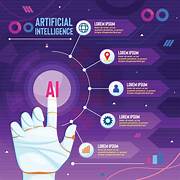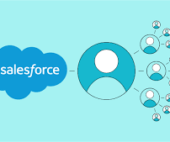Artificial intelligence (AI) has moved from an emerging technology to a mainstream business imperative, making it essential for leaders across industries to understand and communicate its concepts. To help you unlock the full potential of AI in your organization, this 2024 AI Glossary outlines key terms and phrases that are critical for discussing and implementing AI solutions.
Tectonic 2024 AI Glossary
Active Learning
A blend of supervised and unsupervised learning, active learning allows AI models to identify patterns, determine the next step in learning, and only seek human intervention when necessary. This makes it an efficient approach to developing specialized AI models with greater speed and precision, which is ideal for businesses aiming for reliability and efficiency in AI adoption.
AI Alignment
This subfield focuses on aligning the objectives of AI systems with the goals of their designers or users. It ensures that AI achieves intended outcomes while also integrating ethical standards and values when making decisions.
AI Hallucinations
These occur when an AI system generates incorrect or misleading outputs. Hallucinations often stem from biased or insufficient training data or incorrect model assumptions.
AI-Powered Automation
Also known as “intelligent automation,” this refers to the integration of AI with rules-based automation tools like robotic process automation (RPA). By incorporating AI technologies such as machine learning (ML), natural language processing (NLP), and computer vision (CV), AI-powered automation expands the scope of tasks that can be automated, enhancing productivity and customer experience.
AI Usage Auditing
An AI usage audit is a comprehensive review that ensures your AI program meets its goals, complies with legal requirements, and adheres to organizational standards. This process helps confirm the ethical and accurate performance of AI systems.
Artificial General Intelligence (AGI)
AGI refers to a theoretical AI system that matches human cognitive abilities and adaptability. While it remains a future concept, experts predict it may take decades or even centuries to develop true AGI.
Artificial Intelligence (AI)
AI encompasses computer systems that can perform complex tasks traditionally requiring human intelligence, such as reasoning, decision-making, and problem-solving.
Bias
Bias in AI refers to skewed outcomes that unfairly disadvantage certain ideas, objectives, or groups of people. This often results from insufficient or unrepresentative training data.
Confidence Score
A confidence score is a probability measure indicating how certain an AI model is that it has performed its assigned task correctly.
Conversational AI
A type of AI designed to simulate human conversation using techniques like NLP and generative AI. It can be further enhanced with capabilities like image recognition.
Cost Control
This is the process of monitoring project progress in real-time, tracking resource usage, analyzing performance metrics, and addressing potential budget issues before they escalate, ensuring projects stay on track.
Data Annotation (Data Labeling)
The process of labeling data with specific features to help AI models learn and recognize patterns during training.
Deep Learning
A subset of machine learning that uses multi-layered neural networks to simulate complex human decision-making processes.
Enterprise AI
AI technology designed specifically to meet organizational needs, including governance, compliance, and security requirements.
Foundational Models
These models learn from large datasets and can be fine-tuned for specific tasks. Their adaptability makes them cost-effective, reducing the need for separate models for each task.
Generative AI
A type of AI capable of creating new content such as text, images, audio, and synthetic data. It learns from vast datasets and generates new outputs that resemble but do not replicate the original data.
Generative AI Feature Governance
A set of principles and policies ensuring the responsible use of generative AI technologies throughout an organization, aligning with company values and societal norms.
Human in the Loop (HITL)
A feedback process where human intervention ensures the accuracy and ethical standards of AI outputs, essential for improving AI training and decision-making.
Intelligent Document Processing (IDP)
IDP extracts data from a variety of document types using AI techniques like NLP and CV to automate and analyze document-based tasks.
Large Language Model (LLM)
An AI technology trained on massive datasets to understand and generate text. LLMs are key in language understanding and generation and utilize transformer models for processing sequential data.
Machine Learning (ML)
A branch of AI that allows systems to learn from data and improve accuracy over time through algorithms.
Model Accuracy
A measure of how often an AI model performs tasks correctly, typically evaluated using metrics such as the F1 score, which combines precision and recall.
Natural Language Processing (NLP)
An AI technique that enables machines to understand, interpret, and generate human language through a combination of linguistic and statistical models.
Retrieval Augmented Generation (RAG)
This technique enhances the reliability of generative AI by incorporating external data to improve the accuracy of generated content.
Supervised Learning
A machine learning approach that uses labeled datasets to train AI models to make accurate predictions.
Unsupervised Learning
A type of machine learning that analyzes and groups unlabeled data without human input, often used to discover hidden patterns.
By understanding these terms, you can better navigate the AI implementation world and apply its transformative power to drive innovation and efficiency across your organization.
Tectonic 2024 AI Glossary













